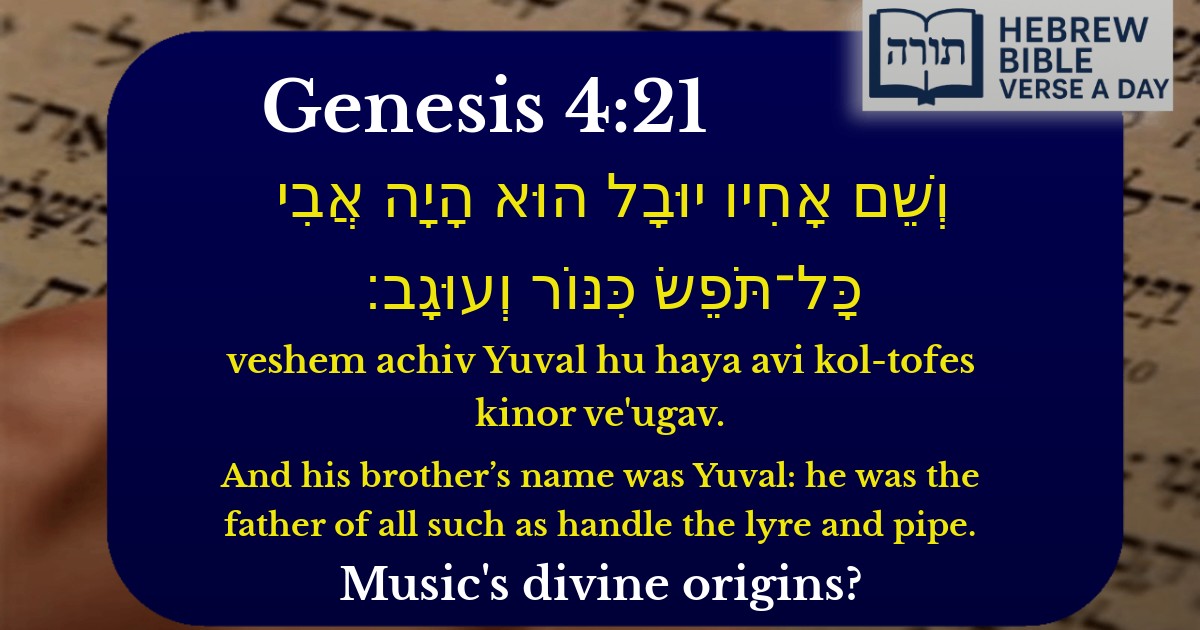Join Our Newsletter To Be Informed When New Videos Are Posted
Join the thousands of fellow Studends who rely on our videos to learn how to read the bible in Hebrew for free!
Hebrew Text
וְשֵׁם אָחִיו יוּבָל הוּא הָיָה אֲבִי כָּל־תֹּפֵשׂ כִּנּוֹר וְעוּגָב׃
English Translation
And his brother’s name was Yuval: he was the father of all such as handle the lyre and pipe.
Transliteration
Veshem achiv Yuval hu haya avi kol-tofes kinor ve'ugav.
Hebrew Leining Text
וְשֵׁ֥ם אָחִ֖יו יוּבָ֑ל ה֣וּא הָיָ֔ה אֲבִ֕י כׇּל־תֹּפֵ֥שׂ כִּנּ֖וֹר וְעוּגָֽב׃
וְשֵׁ֥ם אָחִ֖יו יוּבָ֑ל ה֣וּא הָיָ֔ה אֲבִ֕י כׇּל־תֹּפֵ֥שׂ כִּנּ֖וֹר וְעוּגָֽב׃
🎵 Listen to leining
Parasha Commentary
📚 Talmud Citations
This verse is quoted in the Talmud.
📖 Yoma 38b
The verse is referenced in a discussion about the origins of musical instruments and their inventors.


Yuval: The Father of Music
The verse (Bereishit 4:21) introduces Yuval as the progenitor of musical instruments—specifically the kinnor (lyre) and ugav (pipe). Rashi explains that Yuval was the first to develop these instruments, establishing the foundation for musical expression in human civilization. The term "avi" (father) here denotes not biological lineage but rather his role as the originator and master of this art form.
Musical Instruments in Torah Tradition
According to the Midrash (Bereishit Rabbah 23:4), Yuval's innovation was significant because music served both practical and spiritual purposes:
The Spiritual Duality of Music
Rambam (Hilchot Ta'anit 5:14) notes that while music can elevate the soul in divine service, it can also be misused for frivolity or idolatry (as later seen with the Golden Calf, Shemot 32:17-19). The Talmud (Sotah 48a) warns that after the destruction of the Temple, music became restricted as a sign of mourning, highlighting its sacred potential.
Etymology of "Yuval"
The name Yuval (יוּבָל) shares a root with yovel (jubilee), symbolizing cycles and continuity. The Kli Yakar suggests this reflects music's power to transcend time, uniting generations through melody—much like the shofar of Yovel announces freedom and renewal (Vayikra 25:9-10).